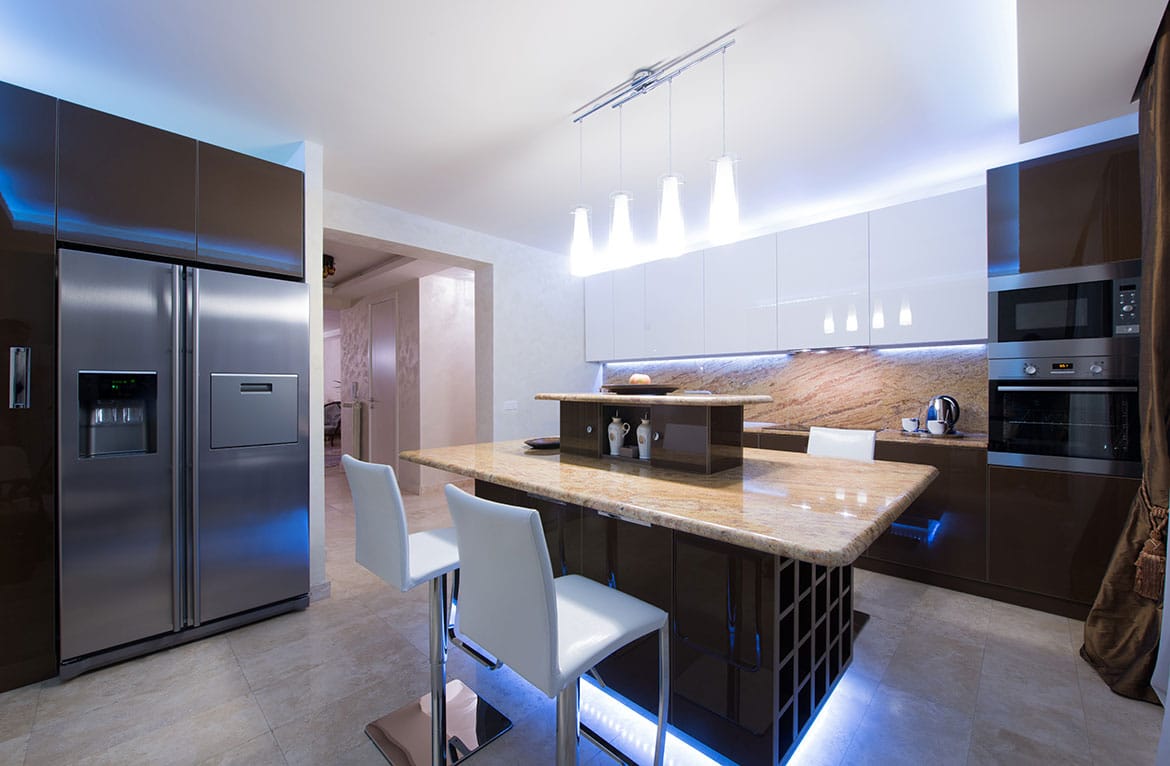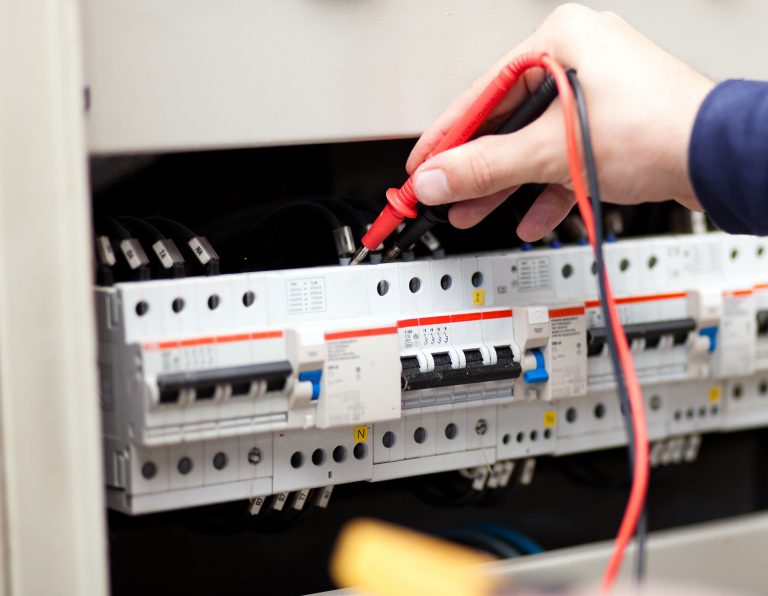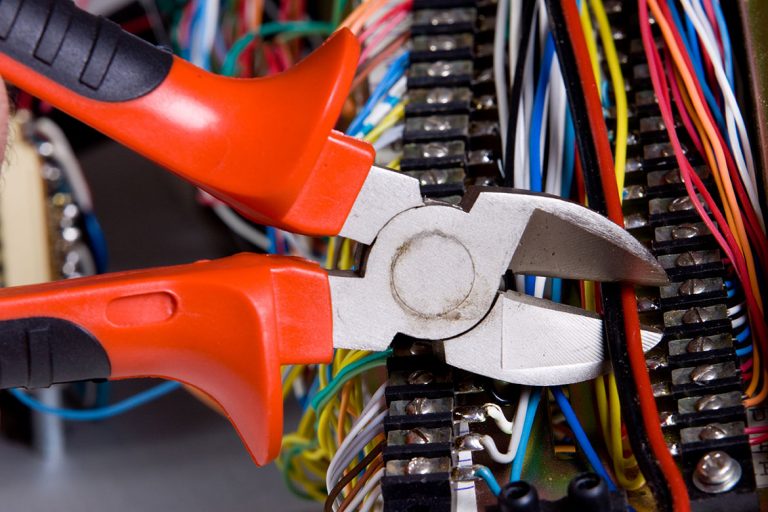Electrical Work In Kitchens
When it comes to electrical installations, kitchens are considered a high risk location.
A straightforward way of meeting the requirements is to use an electrical contractor who is registered with a Competent Person Scheme such as NICEIC. They can self-certify the work and notify the local building control department on your behalf.
What type of work is notifiable?
Under the latest edition of Part P, electrical work undertaken in kitchens (such as adding a new socket, electric floor heating, extra low voltage (ELV) lighting and central heating controls are no longer notifiable unless a new circuit is required.
Work in a kitchen that remains notifiable includes the installation of a new circuit.
Sockets and Switches
Electrical sockets or switches should be fitted at a safe distance (it is recommended at least 30cm horizontally) from a sink to avoid the chance of water coming into contact with electricity.
Sockets should also be easily accessible. If appliances such as fridges, dishwashers and washing machines are fitted under worktops, getting to sockets may be difficult. Ideally, these appliances should be controlled by a switched fuse connection unit mounted above the worktop where you can reach it easily.
All new sockets in a house require protection by an RCD (Residual Current Device).
An RCD is a sensitive safety device that switches off electricity automatically if there is a fault. It is a life-saving device designed to protect against the risks of electrocution and fire caused by earth faults.
Simple tips for kitchen safety
Never use switches or any electrical equipment when your hands are wet
Don’t wrap flexible cables around any equipment when it is still warm
Check that flexible leads and appliances such as kettles and toasters are in good condition
Don’t try to repair an appliance when it is still plugged in
Never try to get toast that is stuck out of a toaster while it is plugged in, and especially not with a metal knife as there are often live parts inside
Make sure you thoroughly clean your oven and grill – a build-up of fat and grease is a major cause of fires
Check your sockets are not overloaded with too many electrical appliances as this can lead to overheating
Avoid storing objects on top of appliances like the microwave, which can block ventilation
Defrost your fridge and freezer at least once a year to ensure these appliances continue to work properly
I want to fit a new kitchen. What do I need to know?
Certain electrical work carried out in the kitchen has to be notified to the local building control department so that it meets the appropriate safety standards.
Speak to the kitchen fitter or electrician before any work to upgrade your kitchen commences. Find out if the work complies with Part P of the building regulations and that the appropriate notification and certification will be taken care of once the work
is completed.
A straightforward way of meeting the requirements is to use an NICEIC registered contractor (such as Orrell Electrics). They can self-certify the work and notify the local building control department on your behalf.
How do I know if my kitchen is safe for use?
If an appliance keeps tripping or there is noticeable damage to sockets, plugs, wiring or fittings then it could be a sign that your electrics need checking. If you have any concerns regarding the electrics in your home then you should look to call us at Orrell Electrics.
How can I get my kitchen checked for electrical safety?
Get in touch with us at Orrell Electrics to carry out an electrical inspection (sometimes known as a periodic inspection) of the property.
Much like an MOT, this is an inspection of the current condition of an electrical installation in your home. On completion of the inspection, you will receive an Electrical Installation Condition Report (EICR) detailing any damage, deterioration, defects, dangerous conditions and anything not in line with the present-day safety standard which might give rise to danger.
Gary Price
Orrell Electrics Electricians Liverpool




